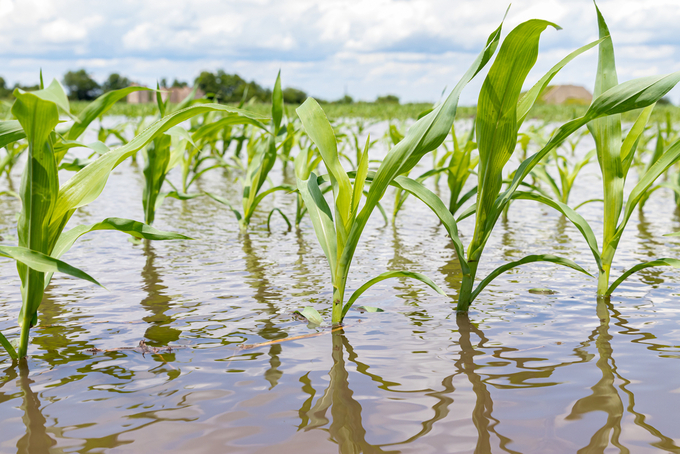November 24, 2025 | 11:56 GMT +7
November 24, 2025 | 11:56 GMT +7
Hotline: 0913.378.918
November 24, 2025 | 11:56 GMT +7
Hotline: 0913.378.918

Using 30 years of water quality data gathered by the UF/IFAS LAKEWATCH program from 1987 to 2018, scientists found that lakes in areas with winter fertilizer bans had the most improvement over time in levels of nitrogen and phosphorus, the main nutrients found in fertilizers.
Using 30 years of water quality data gathered by the UF/IFAS LAKEWATCH program from 1987 to 2018, scientists found that lakes in areas with winter fertilizer bans had the most improvement over time in levels of nitrogen and phosphorus, the main nutrients found in fertilizers.
These lakes also showed larger increases in water clarity and decreases in chlorophyll since the implementation of fertilizer bans. These measurements can also indicate lower nutrient levels, as excess nutrients can feed algae blooms that lead to turbid waters with higher levels of chlorophyll.
“To date, this is the most comprehensive study of fertilizer ordinances’ impact on water quality, not just in Florida but also nationally, and it would not have been possible without the efforts of our LAKEWATCH community scientists,” said Sam Smidt, an assistant professor in the UF/IFAS department of soil, water and ecosystem sciences and the senior author of the study.
Summer fertilizer bans are the most common type of fertilizer ordinance in Florida. They coincide with the state’s rainy season, so “the idea is to prevent fertilizer from washing away into waterbodies when it rains,” Smidt said.
“However, the summer is also when plants, including turfgrass, are growing and using that fertilizer. During the winter, these plants can be less active or even dormant, so they don’t always use the fertilizer. Our study suggests that not applying fertilizer during that less active period has the largest positive effect on water quality compared to summer bans and bans during other parts of the year, though summer and non-seasonal bans also led to water quality improvements.,” Smidt explained. Smidt said lakes are a good barometer of local water quality.
“Lakes are connected to all the waters in the area – rivers, streams, groundwater – so sampling lakes can inform us about the whole hydrological system,” he said.
More than 50 counties and municipalities in Florida have fertilizer ordinances. These ordinances restrict fertilizer use on residential landscapes during certain times of year and are intended to prevent nutrients from fertilizers from entering waterways where they can fuel algal blooms. These blooms can negatively impact ecosystems, human health and local economies.
Until now, research on the effectiveness of these ordinances and their timing has been limited to specific municipalities or waterbodies and involved data collected over only a few years, the study’s authors said.
“Our study looks at fertilizer ordinances statewide and over a long period of time, revealing more generalizable patterns that can help inform how local communities decide to time ordinances to meet their water quality goals,” Smidt said.
The study analyzed data from 160 lakes across Florida. These include natural lakes and stormwater ponds, which are manmade but function similarly to natural lakes.
(Chronicleonline)

(VAN) Brazil's COP30 presidency pushed through a compromise climate deal on Saturday that would boost finance for poor nations coping with global warming but that omitted any mention of the fossil fuels driving it.

(VAN) Poultry farmers in the UK have been warned that they could face one of the worst winters yet for bird flu.

(VAN) Prices of main-crop paddy have risen sharply, with jasmine rice hitting 16,100 baht per tonne — the highest level in years.

(VAN) In Brazil, FAO unveiled a series of reports and initiatives showing how sustainable agrifood systems are a solution to the climate crisis.

(VAN) With names like neodymium and dysprosium, rare-earth elements sound exotic — and their perceived scarcity has only added to the mystique.

(VAN) In a new study published in Trends in Biotechnology, researchers used a gene-editing technology called CRISPR to increase a fungus's production efficiency and cut its production-related environmental impact by as much as 61%- all without adding any foreign DNA.

(VAN) A top official in Beijing’s Cop delegation says China is committed to clean energy – but US’s absence is a problem.